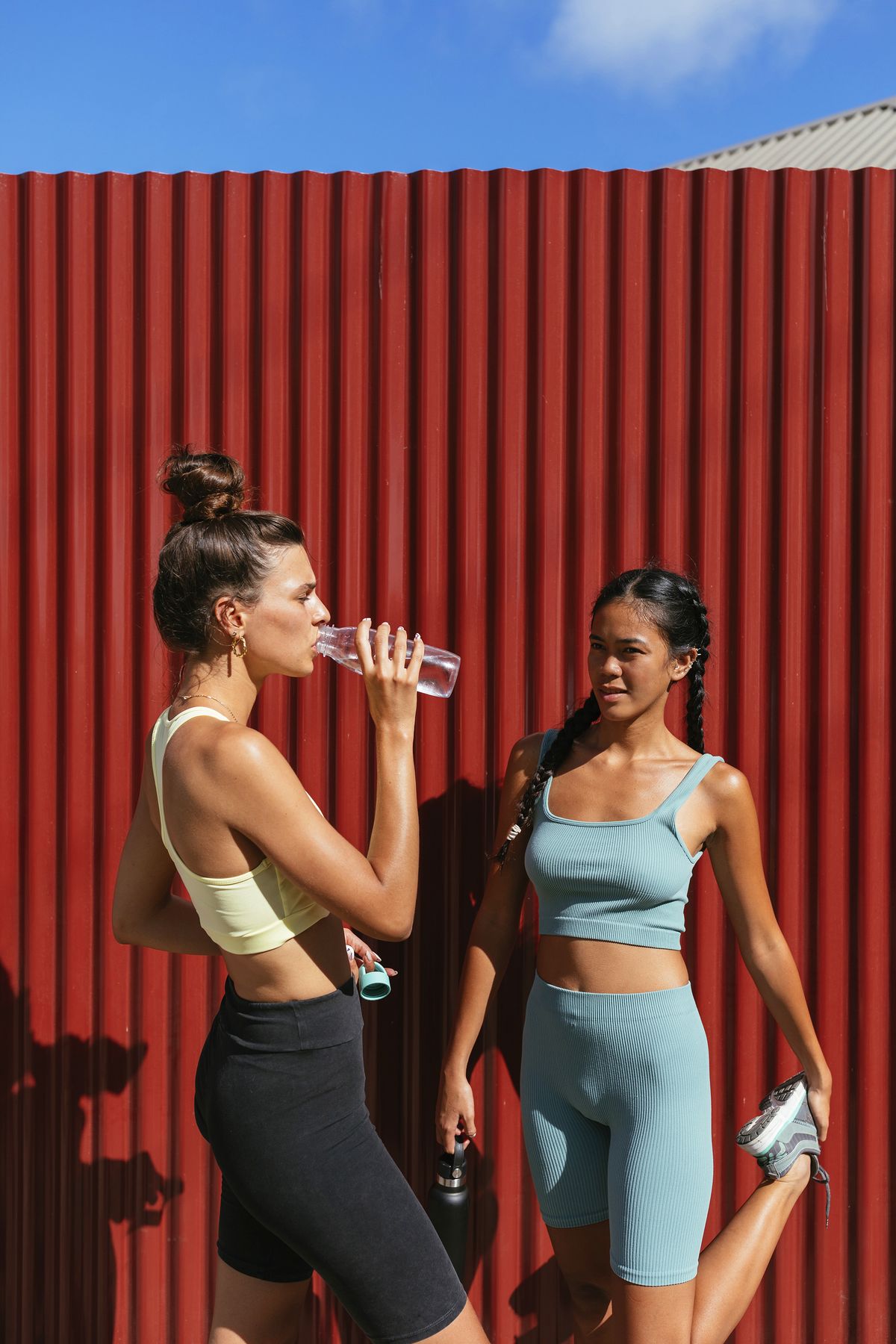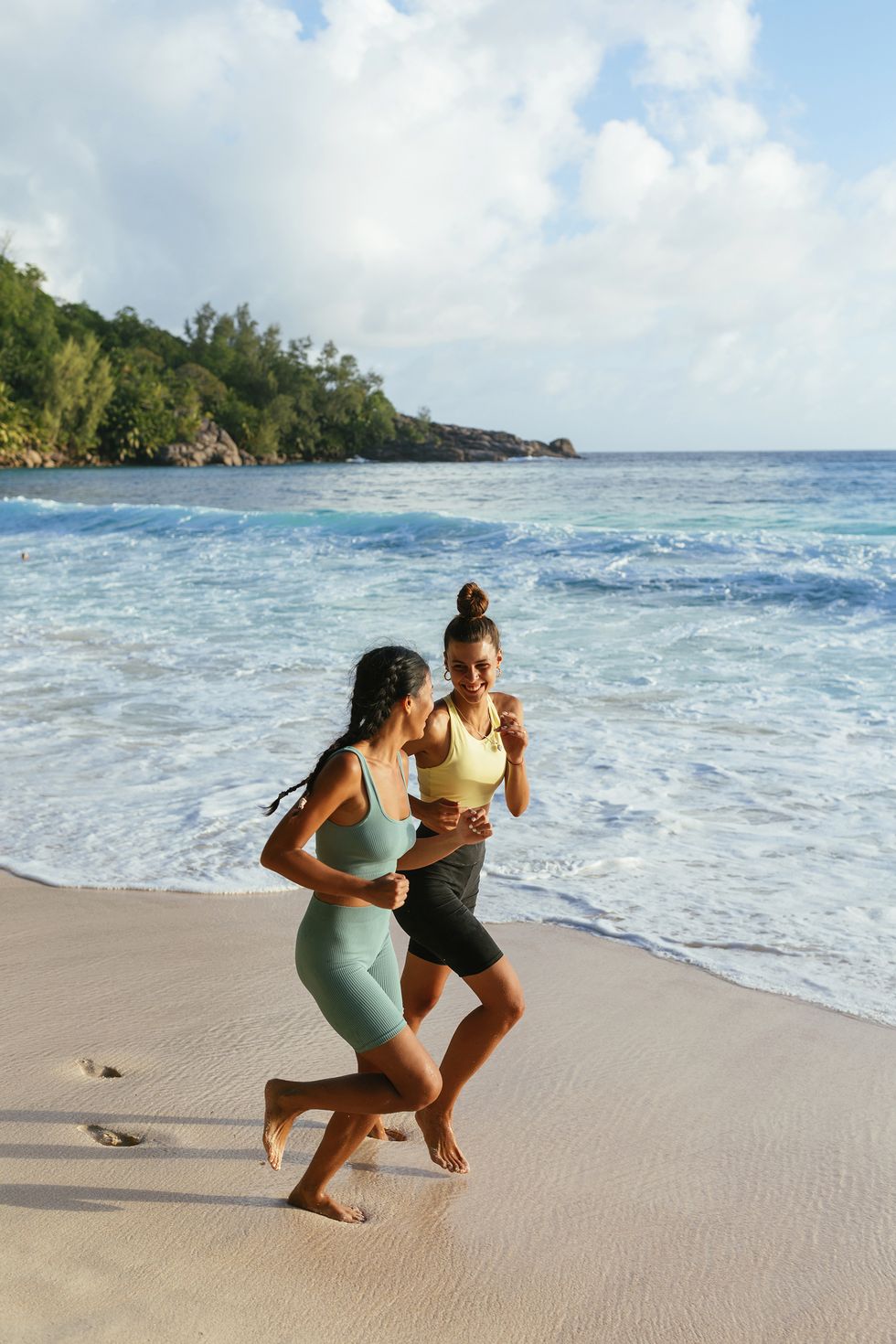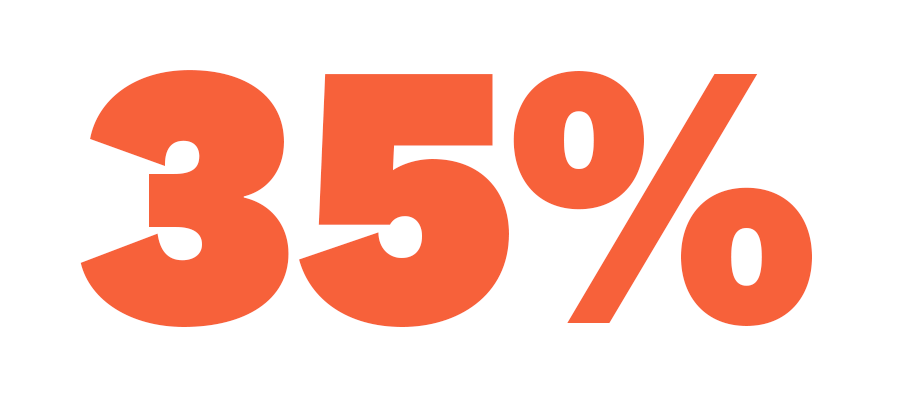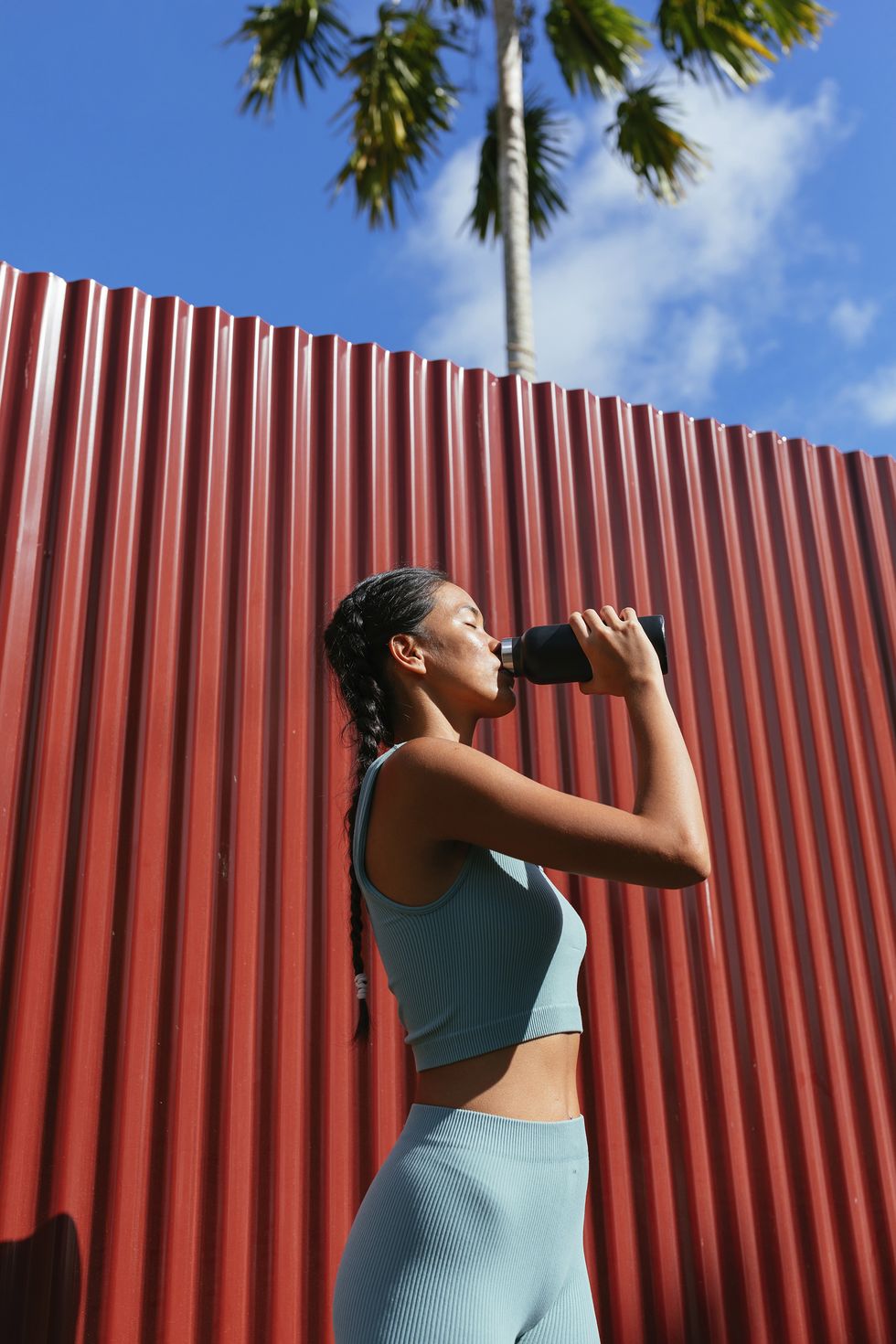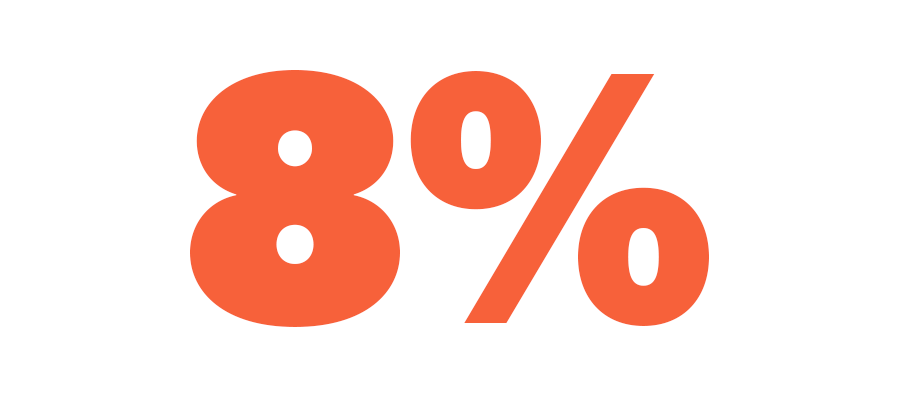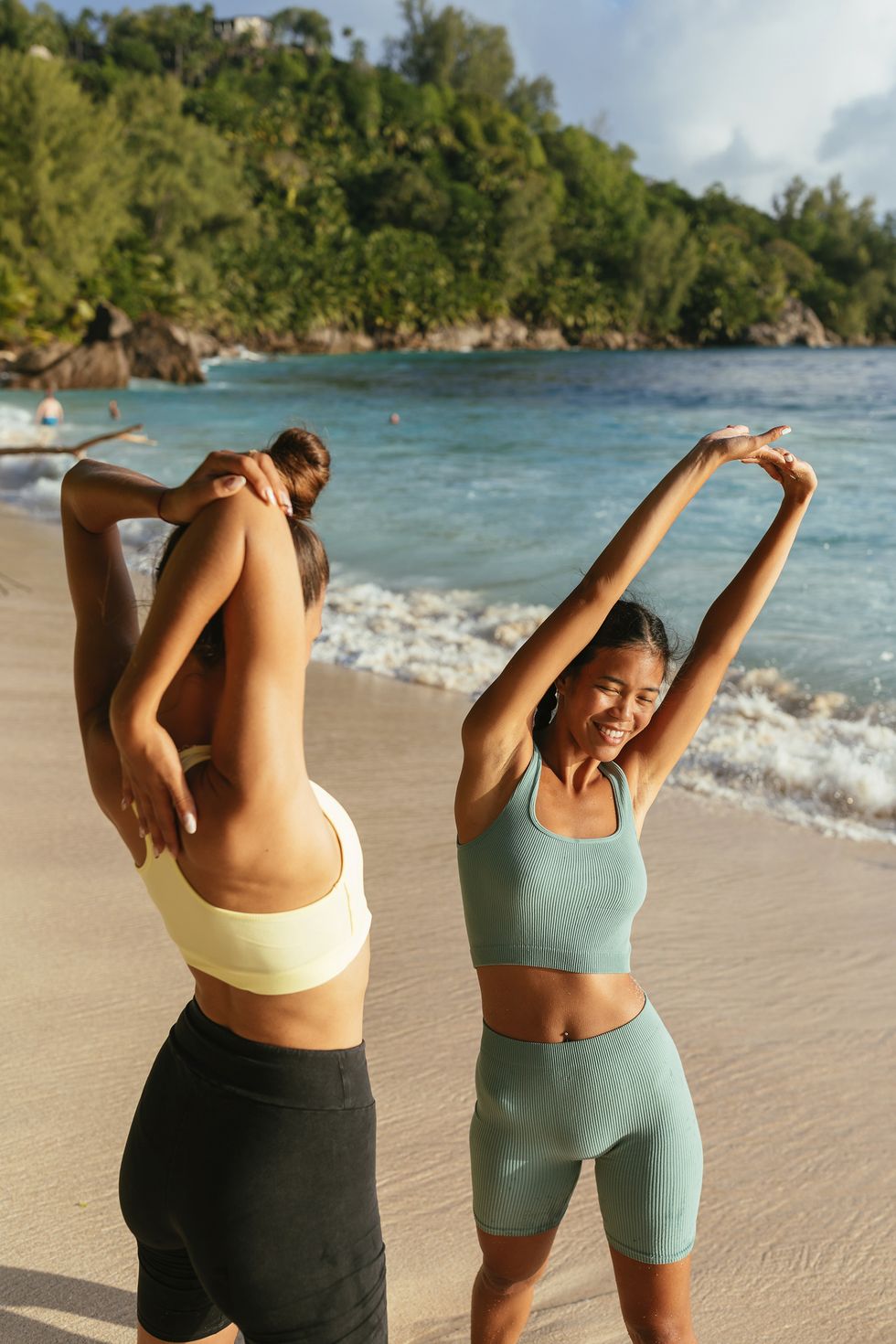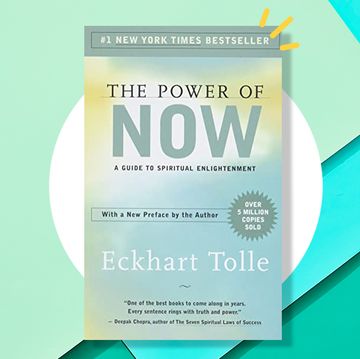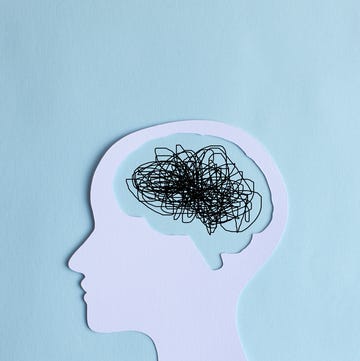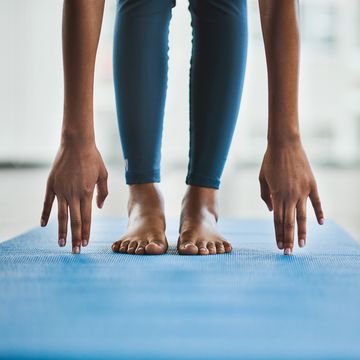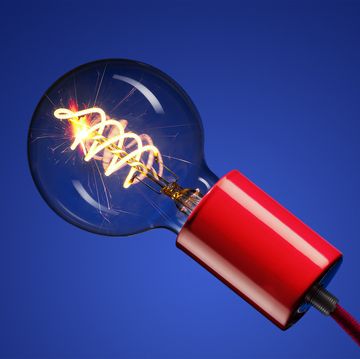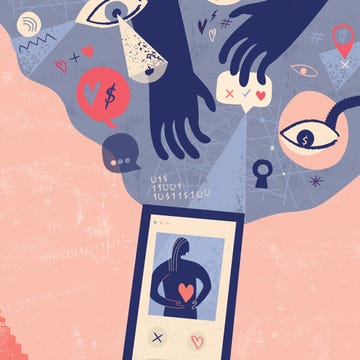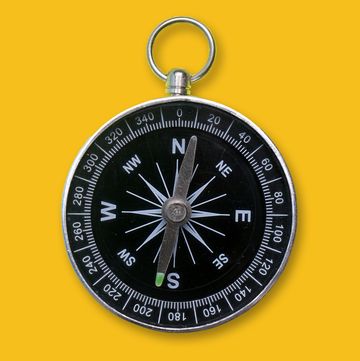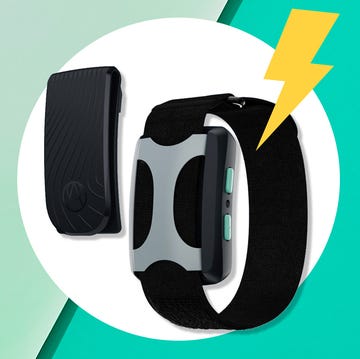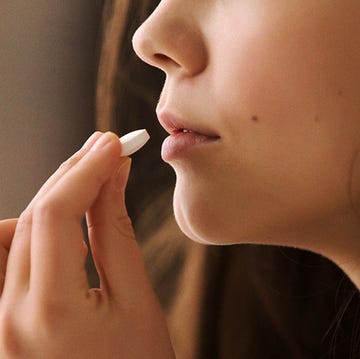Sarah MacKay Robinson recalls the exact moment she started questioning the role that alcohol played in her life. It was the day after she finished her crowning athletic achievement: competing at the 2016 Olympic Marathon Trials, the once-every-four-years race in which the top three finishers earn a spot on the U.S. team. Simply qualifying for the event is a major achievement, one that Robinson dedicated a lot of work to accomplishing.
As many runners do, Robinson celebrated the culmination of months of intense training with a few drinks with friends after the race. And although she’s never felt addicted to alcohol, or that there’s anything wrong with choosing to drink, she began realizing her decision to have a glass of wine a few times a week, or to toast a big moment, wasn’t adding value.
“I was sitting in the airport, holding my 18-month-old child, a little bit hungover,” recalls Robinson, who’s a brand and content specialist in Tacoma, Washington. “I remember thinking, Is this really how I want to feel after one of the biggest and proudest moments in my life—woozy at LAX? Do I want to be hungover with my kids? That was just a bummer to me.”
More From Women's Health

Another impetus for Robinson, who is now 40: “I was so tired of questioning whether alcohol’s good or bad for me,” she says. “I wanted to free up that mental space for something else.”
So, right around that time, she stopped drinking. Just for a little while at first—on-and-off periods for 30 days or 60 days. As life went on, those experimental periods grew much longer.
The Shift to Dry(er) Physical Activity
Robinson—knowingly or not—joined what’s often referred to as the “sober curious” movement, an umbrella term used to describe a reduction in drinking, be it in the form of total abstinence or simple moderation. The concept isn’t new (think Dry January and Sober October), but it’s attracting the masses more, arguably, than ever before. In January 2022, nonalcoholic beverages saw a 19 percent increase in dollar sales, while total alcohol sales were down 6.7 percent, according to a Nielsen report. What’s more, one of the top reasons consumers cited for reeling in the drinking was improved wellness.
Katie Witkiewitz, PhD, director of the University of New Mexico’s Center on Alcohol, Substance Use, and Addictions, is thrilled that people are “starting to take a continuum health perspective on alcohol and that it’s becoming more socially acceptable to not drink—whether it’s for Dry January or because you’re running a marathon,” she says. “Any reduction in drinking is beneficial, as it may help you be more active or competitive because you’ll have better sleep, energy, and general physical function.”
Alcohol’s Body Impact
What exactly does a bev here and there do to your performance, anyway? It depends on the individual and factors such as age, gender, body mass, and other variables. Generally speaking, though, when you drink, your body will be busy processing that alcohol, which has no caloric (meaning: energy) value, and it hinders muscle repair and hydration—components of basic recovery that allow you to adapt to the stress of training and to continue exercising.
of adults 21 and over in the U.S. ditched alcohol in January 2022—an increase from 21 percent in 2019.
Source: CGA
Also, the more you drink, the more you’ll urinate, which delays the hydration process. Alcohol, too, inhibits carbohydrate and protein intake, which stunts muscle repair, as well as limits the production of hormones that help grow muscles, research shows. And while you may fall asleep a little faster after a cocktail, it actually decreases the overall quality of your night’s rest, which is the most critical aspect of recovery for athletes. Imbibing spurs the liver to metabolize alcohol during the night; as the blood alcohol level decreases, you’re more likely to have sleep disruptions.
Ultimately, while science doesn’t say for certain that quitting drinking for X number of days will help you run or lift X amount faster or heavier, it’s widely accepted that not drinking—for a day, a week, a year, or forever—is more likely than not to positively impact performance.
Defining Moderation
The reality is, though, not all exercisers are considering giving up the post-hike brew or glass of wine with dinner in pursuit of a better workout. Moderate drinking—one drink or less a day for women, per the U.S. Department of Health & Human Services—generally is not going to present long-term health risks, although the less you drink, the less likely you are to experience any serious repercussions like liver disease, breast cancer, cognitive decline, or heart disease. Still, experts can rattle off plenty of compelling reasons beyond setting a new PR for women to consider cutting down.
When Stevie Lyn Smith, RDN, lived in Washington, D.C., a few years ago, she trained for Ironman triathlons—and partook in the heavy happy hour culture. She’d have a few cocktails and get up the next day to train, even when she was hungover. Then a move to Buffalo coincided with the onset of the pandemic, which tabled socializing. It didn’t take long for her to notice how much better she felt without alcohol.
She could wake up on Sunday mornings and not want to stay in bed all day. The data backed up what she felt too—her sports watch tracked stats such as heart rate variability (or HRV, the variation in time between each beat), a measure that increased the less she drank, indicating greater fitness and better recovery. (The number usually drops if you’re sick, tired, stressed, or otherwise struggling.) “Because of my Ironman background, I live and die by heart-rate training. When I was drinking, my heart rate was higher, and I’d just drag in workouts,” says Smith, who also counsels other athletes on how to fuel their active lives.
Smith hasn’t cut out all alcohol, but she limits it considerably these days, usually to when she’s going to a restaurant that has a well-made cocktail or to a hard seltzer at a baseball game with her mom. “It’s a very intentional choice,” she says. “I often go months without a drink.”
The decline in recovery that users of fitness tracker Whoop experienced, on average, after drinking alcohol the night before.(Consuming alcohol had the single greatest negative impact on next-day recovery, per the Whoop study.)
Many of Smith’s nutrition clients inquire about cutting down while they’re training for an endurance event. Usually, they have a hunch about what she’s going to say. “Most people come to me already knowing that drinking is probably not the best choice for their goal and what they’re looking to do,” she says. When they get honest with her about alcohol, she says, “they tend to at least adjust their behaviors around it because they start to recognize that it’s detrimental.”
Strike A Balance
For women considering a cutback, Witkiewitz encourages them to first assess how much they currently drink by keeping a diary or using one of the many apps that allow you to track beverages. Robinson uses a free app called I Am Sober, which has a feature that lets you list your reasons for omitting alcohol. When you log in to see how many days you’ve gone without a drink, you’re reminded of your “why.” When she used sobriety as motivation for a fitness goal, “I would post the date of the race to have that front and center,” Robinson says.
After you track your drinks for a month or so, identify the sips you could reasonably cut out. Some people choose not to have alcohol on weekdays, for example, or commit to one glass of wine with dinner instead of two. And plan ahead. If you’re looking at total drinks per week and you know you have an event coming up where you’ll want to indulge, then adjust how much you consume the rest of the week.
Rachel Gersten, a therapist in New York who removed alcohol to help manage an inflammatory autoimmune disease, encourages anybody to try a dry period and see what happens. She believes most people would be surprised by how much alcohol pops up in their daily life and how it requires intention and awareness to ultimately adjust the drinking rituals they’ve become accustomed to. “Try to gather information about yourself,” Gersten says. “Are you okay with what you learn?”
If Lindsay Riess, 37, is beginning another 12-week training cycle in which she’ll run up to 70 miles per week to PR in a marathon, she cuts out alcohol. She can’t tell if the decision has had any obvious effect on her results, but the habit makes her feel healthier overall. Her one exception? The Arizona-based runner usually still has one drink the night before her marathon. “It takes that anxiety piece down for me, so that’s my little contradiction,” she says.
For her part, Robinson has gone without a drink for more than two years and experienced her best training and fastest marathon after three months as a teetotaler (coincidence or not). She has only one regret about her decision to eliminate alcohol: “I wish I did it sooner, when I was at my peak fitness, because I would’ve crushed.”
